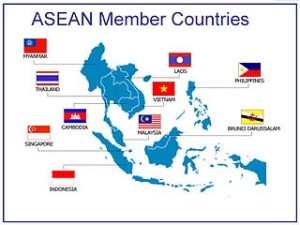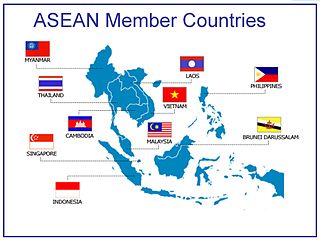 The Association of Southeast Asian Nations (ASEAN) will officially call itself a single market by year’s end, but it will not be able to realize complete integration until five years later, according to Malaysia’s International Trade Minister Mustapa Mohamed.
The Association of Southeast Asian Nations (ASEAN) will officially call itself a single market by year’s end, but it will not be able to realize complete integration until five years later, according to Malaysia’s International Trade Minister Mustapa Mohamed.
“The AEC is still in progress and the ASEAN member states are targeting to complete 95% of the integration measures by the end of 2015,” Mustapa said at local media briefings recently.
“We know and we have agreed among ASEAN ministers that it is impossible for us to achieve the 100% (target) because of domestic constraints. And they cannot be accomplished in the near term. God willing, we will meet 95% (of the target),” he said in reports released on the Malaysian Ministry of International Trade and Industry (MITI) website.
Mustapa conceded that it would only be in 2020 that more progress in the “big things” of ASEAN economic integration, such as seamless travel, abolishing nontariff barriers, and free flow of skilled labor within the region, will be seen.
By year’s end, there will be “freer movement of goods and services but not free movement of goods and services,” said the MITI official, whose country holds the rotating chairmanship of the Southeast Asian bloc this year.
“We don’t have complete integration or harmonization yet, 2015 is laying the stage for bigger things to come,” he said. “We’re going to get almost there by 2015 but the big things like seamless travel… would come in 2020.”
“What’s important is that we’re committed, I’m not saying that we’re backtracking,” added the minister.
The 10-member ASEAN region, a market of about 600 million people, had set 2015 as a deadline for integrating the region’s vast economies into a single market, with tariffs abolished and free movement of skilled workers.
But full integration is hampered by the vastly different stages of economic development among its members, ranging from the fledgling economy of Myanmar to the advanced economy of Singapore.
The region also has to contend with border issues such as different customs, immigration, and policy regulations, as well as the little understanding by the general public of how a single market can change their lives, said the minister.
Mustapa said Malaysia is reiterating the need to beef up the ASEAN Secretariat in view of the wide-ranging agenda of the grouping.
He said there is a need to upgrade the ASEAN Secretariat’s credibility because “it is very important in charting the direction of the ASEAN community as a whole.”
ASEAN groups together Brunei, Cambodia, Indonesia, Laos, Malaysia, Myanmar, Philippines, Singapore, Thailand, and Vietnam.
Photo: Astore International





